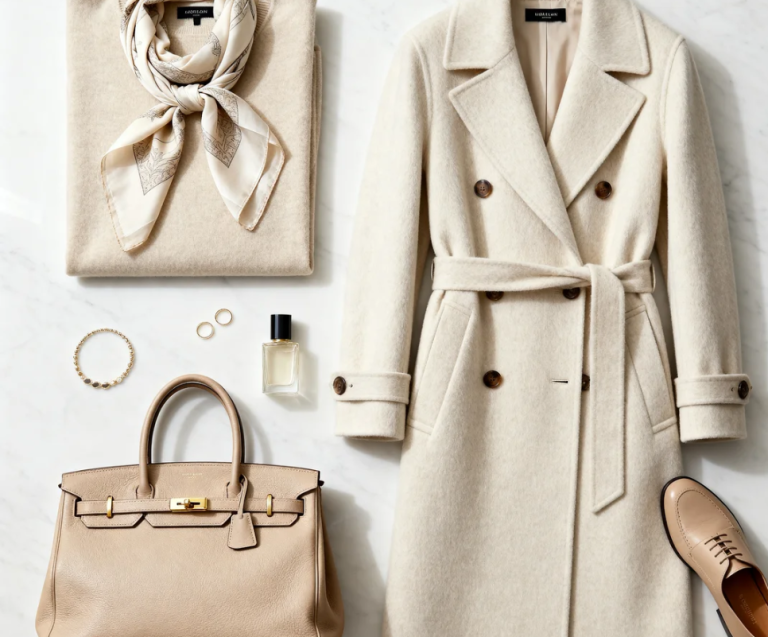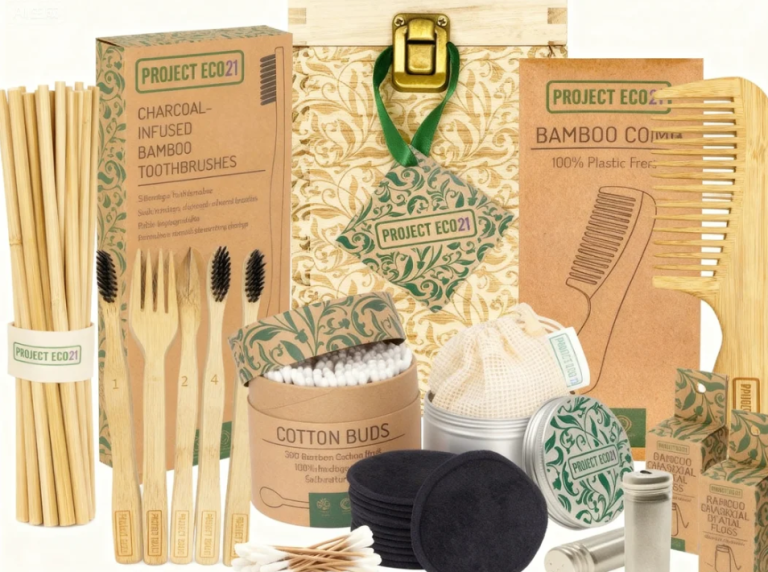
As a sustainable fashion enthusiast in the U.S. for over a decade, I’ve learned one key secret: building a wardrobe that suits your lifestyle and respects the planet starts with a small but crucial detail — the fabric label.
We often get drawn to flattering cuts or trending colors, but the material ultimately determines comfort, durability, and environmental impact 🌍. Those tiny tags inside your clothes aren’t just decorative — they’re a manual for how a garment will feel, breathe, and last.
If you’re ready to leave fast fashion behind and invest in pieces that align with your values, mastering fabric knowledge is non-negotiable ✨.
🌱 Why Fabric Matters — For You and the Planet
Fast fashion dominates Western stores and online platforms, making it easy to overlook fiber composition. Every fabric has a “story,” and some are far lighter on the planet than others:
Natural Fibers (Cotton, Linen, Hemp)
- Breathable, renewable, and biodegradable
- Soft against skin, irritation-free
- Naturally decompose at the end of life 🌿
Synthetic Fibers (Polyester, Nylon, Acrylic)
- Made from fossil fuels — essentially plastic
- Release microplastics with every wash
- Take hundreds of years to decompose in landfills ♻️
Blends
- Small amounts of elastic fibers improve denim stretch
- 50/50 polyester-cotton blends are almost impossible to recycle
- Can negate the biodegradability of natural fibers
💡 For Western consumers, who rank among the highest in clothing consumption per capita, choosing the right fiber is one of the easiest ways to reduce your fashion carbon footprint.

🔍 How to Read Fabric Labels Like a Sustainable Fashion Pro
Every garment has a fabric tag, like “100% Organic Cotton” or “90% Linen, 10% Elastane.” Here’s how to decode it:
Prioritize Natural Fibers
- Labels list fibers by weight. Natural fibers like cotton, linen, hemp, or wool at the top are a good sign ✅
Check Blend Ratios Carefully
- A bit of elastane for stretch is okay
- Avoid cheap plastic-heavy blends (common in fast fashion tees)
- Look for 80–95% natural fiber content whenever possible
Beware of “Greenwashing”
- Bamboo sounds eco-friendly, but most is chemically processed into viscose
- Only trust “mechanically processed bamboo” or “bamboo linen”
Look for Certifications
- GOTS (Global Organic Textile Standard)
- Lenzing ECOVERO™ (Eco-friendly viscose)
- Fair Trade certified
These badges ensure brands are serious about sustainability 🌟
👗 Top Fabrics for a Sustainable Wardrobe
After years of testing, these fibers work best for Western lifestyles:
Organic Cotton
- Soft, durable, skin-friendly; perfect for tees, loungewear, and basics
Linen
- Ideal for hot summers (hello California heatwave!)
- Gets softer over time, versatile, low-maintenance
Hemp
- Low water use, pesticide-free, soft touch
- Great for jackets, pants, even dresses
TENCEL™ Lyocell
- Made from eucalyptus, closed-loop process, silky, moisture-wicking, biodegradable
- Perfect for shirts, dresses, and activewear
Wool / Alpaca
- Irreplaceable for cold Western winters
- Naturally odor-resistant and warm; less washing = less microplastic pollution
- Choose brands prioritizing animal welfare

⚠️ Fabrics to Avoid or Limit
- Polyester, Nylon, Acrylic: ubiquitous plastic fibers in fast fashion
- Traditional Viscose: chemical-heavy production; only trust certified sources
- Cheap Blends: prone to pilling, often discarded after a few months
💡 Recycled synthetics (like rPET) can replace some natural fibers in activewear, but still require microplastic filters when washing.
🛒 Four Questions to Ask Before Buying
- Is the fabric primarily natural?
- Can I care for it properly?
- Will it release microplastics?
- Can I wear it for years?
These questions have saved me from countless regretful purchases 💪.
🌟 My Favorite Natural Fiber Brands in the West
- MATE the Label: Soft, durable basics and loungewear
- Transcend: Linen dresses and organic cotton shirts, timeless pieces
- Poppy Barley: Organic cotton tops paired with jeans or skirts
- LA Relaxed: TENCEL™ and organic cotton relaxed shirts, weekend essentials
- Organsk: 100% GOTS-certified organic cotton jeans, flattering and long-lasting
- Tripulse: Plastic-free activewear, TENCEL™ + biodegradable Roica® elastane
💚 Conclusion: Sustainable Fashion Isn’t Hard
When I first started paying attention to fabrics, I worried shopping would become stressful. Now, it’s instinctive.
Reading labels feels like having a superpower 🦸♀️ — using your purchases to vote for a more sustainable fashion industry.
Next time you browse an online sale or pick up a garment:
- Your skin will thank you (no more synthetic fiber rashes!)
- Your wardrobe will thank you (clothes that last years!)
- The planet will thank you 🌎
Sustainable fashion isn’t about perfection — it’s about making more conscious choices. And it all starts with fabric 💫.


